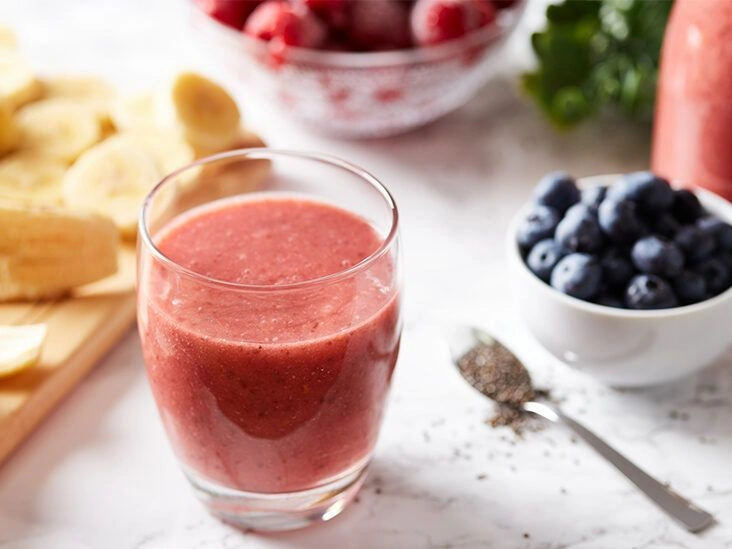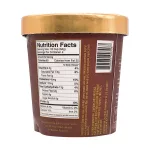Combining carbohydrates with protein before exercising can enhance both performance and recovery. Maintaining hydration is essential, and certain supplements, such as creatine or caffeine, may offer added benefits.
Proper nutrition supports better performance and quicker recovery following each training session.
Consuming the right nutrients before exercise not only helps you get the most from your workout but also reduces muscle damage.
Below is a comprehensive overview of what you should know about pre-workout eating.
Understanding what to eat matters
Providing your body with suitable nutrients before training supplies the energy and strength needed to perform at a higher level.
Each macronutrient has a role to play before exercise, though the proportions that work best can vary depending on factors such as exercise duration, intensity, and modality.
Carbohydrates
Carbs are among the body’s primary energy sources because muscles rely on glucose derived from carbohydrates for fuel.
Glucose is stored and processed as glycogen, mainly in the liver and skeletal muscles.
The International Society of Sports Nutrition (ISSN) states that glycogen is the predominant energy source for muscles during moderate to high intensity activities.
Because glycogen reserves are finite, they are used up during exercise. With longer workouts, your performance and intensity may decline as these stores become depleted.
Research on how glycogen levels relate to workout timing is mixed. The ISSN indicates that high-intensity exercise beyond 60 minutes can exhaust glycogen reserves.
A 2020 review also concluded that pre-exercise carbohydrate intake has a meaningful effect primarily for high-intensity aerobic work or resistance sessions lasting longer than 60 minutes.
The ISSN suggests that how much carbs contribute during prolonged exercise depends on several variables, including training intensity, exercise type, and habitual diet.
Still, across workouts of varying lengths, studies consistently show that consuming carbs boosts glycogen stores and utilization while increasing carbohydrate oxidation during activity.
Eating carbohydrates before training can therefore be important for enhancing performance in longer sessions.
Protein
Numerous studies have shown the potential advantages of consuming protein before exercise for athletic outcomes.
Eating protein prior to a workout has been associated with an increase in muscle protein synthesis — the process by which amino acids, the components of protein, are assembled into muscle proteins, contributing to muscle mass.
The ISSN lists additional potential benefits of pre-exercise protein intake, including:
- promoting increases in muscle mass
- aiding muscle recovery
- enhancing strength and lean body composition
- improving muscular performance
Fat
While glycogen fuels short, high-intensity efforts, fat is the primary fuel for longer-duration, moderate-to-low intensity activity.
Some research has explored the impact of fat intake on performance, but much of this work has focused on high-fat diets followed over extended periods rather than single pre-exercise meals.
For instance, a 2021 review reported that a low-carb, high-fat approach could improve body composition and raise maximal oxygen uptake when combined with high-intensity interval training (HIIT).
A 2023 study in 10 men compared a high-fat meal to a high-carb meal eaten 3.5 hours before an endurance session after a week of carbohydrate loading.
Those who consumed the high-fat meal maintained better glycogen levels after 60 minutes than those who ate the high-carb option.
However, additional research is needed to clarify the specific role of pre-exercise fat ingestion.
»MORE:Learn how to lose weight the healthy way, the Wellos™ wayWellos is owned by RVO Health. By clicking on this link, we may receive a commission. Learn more.
Meal timing matters

The timing of your pre-workout meal is an important part of nutrition planning because it helps ensure you have sufficient nutrients and energy to get the most from your session.
A 2020 review indicates many studies recommend eating about 1 hour before exercise, though others report benefits from meals consumed up to 4 hours beforehand.
How you feel during your workout is an important consideration.
If you’re hungry while exercising, you probably won’t be able to train at your peak. Conversely, feeling overly full or sluggish can also impair performance.
Striking the right equilibrium is crucial. This means the types and portion sizes of foods should be adjusted based on how long before activity you eat.
To optimize training outcomes, aim for a complete meal containing carbs, protein, and fat 2 to 3 hours before exercise, or a smaller carb- and protein-focused snack 1 to 1.5 hours beforehand.
For carbohydrates, prioritize complex, fiber-containing choices like potatoes, whole grains, and oats, since they digest more slowly and provide steadier energy.
Healthy fats such as those from fish, nuts, and avocados can supply sustained energy because they take longer to digest.
That said, the slower digestion of fat can lead to bloating or sluggishness if you consume too much too close to your workout.
If you eat 45 to 60 minutes before training, choose smaller portions and foods that are easier to digest, like a protein shake, bananas, or oatmeal to reduce feelings of fullness.
Keep in mind that meal timing is likely more important for longer workouts; pre-exercise meals have less impact on performance for sessions lasting under 1 hour.
Sample pre-workout meals
What and how much to eat depends on the nature, duration, and intensity of your exercise.
Below are examples of balanced pre-exercise meals:
If your workout begins within 2 to 3 hours or more
- a whole-grain sandwich with sliced chicken and a side salad
- half a sweet potato with a fillet of salmon and grilled vegetables
- lean ground beef with brown rice and roasted vegetables
If your workout begins within 2 hours
- an omelet with whole-grain toast topped with avocado and a cup of fruit
- a bowl of oatmeal with a scoop of protein powder, a banana, and sliced almonds
- a natural almond butter and fruit preserve sandwich on whole-grain bread
If your workout begins within an hour or less
- Greek yogurt with fruit
- a protein smoothie made with water, protein powder, a banana, and mixed berries
- a nutrition bar containing protein
- a piece of fruit such as a banana, orange, or apple
There’s no need to prepare multiple meals for different times; you can choose one option and refine it with practice.
Experiment with timing and macronutrient ratios to determine what works best for you.
Supplements may be helpful
Many athletes and recreational exercisers use supplements. These products can support performance, enhance strength, increase lean muscle, and decrease fatigue.
Some commonly used pre-workout supplements include:
- creatine
- caffeine
- branched-chain amino acids (BCAAs)
- beta-alanine
- multi-ingredient pre-workout blends
Recommended timing varies by product, but pre-workout supplements are typically taken about 30 to 45 minutes before exercise.
Consult a healthcare professional before starting any supplement to avoid adverse effects and to get guidance on appropriate dosing and product choice.
Hydration is essential
Your body requires water to operate effectively.
Adequate hydration can help maintain and even enhance performance, whereas dehydration can markedly impair it.
Consider taking in both water and sodium before exercising to support fluid balance.
The American College of Sports Medicine (ACSM) Position Stand from 2007 suggests drinking slowly at least 4 hours before activity. If you’re not producing urine or your urine is dark, they advise drinking a bit more about 2 hours before exercise.
They also recommend including a beverage or snack with sodium to help retain fluids.
Bottom line
Feeding your body with appropriate nutrients before a workout is key to maximizing performance and aiding recovery.
Carbohydrates support glycogen availability for short, high-intensity efforts, while fats are more important for prolonged, lower-intensity exercise.
Protein intake before exercise promotes muscle protein synthesis, helps prevent muscle damage, and supports recovery.
Aim to have a pre-workout meal up to 3 hours before exercise, adjusting macronutrient composition and portion sizes based on timing and exercise demands.
If you’re uncertain about pre-exercise nutrition, consult a registered dietitian for personalized recommendations.

























Leave a Reply
You must be logged in to post a comment.